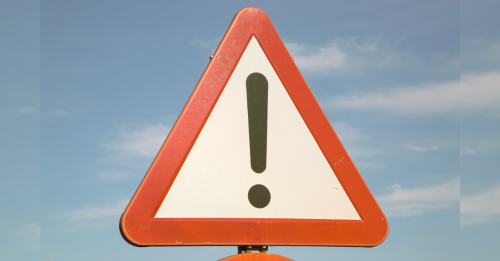16 Warning Signs - Mental Health Decline

By The Mindful Leader Team
In the latest Conference Board workforce survey over a third of respondents, reported a decline in their mental health. This is quickly becoming a priority for leaders and human resource executives across all organizations and industries. In a recent episode of CEO Perspectives, an insightful discussion with Donna Morris, Executive Vice President, and Chief People Officer at Walmart, underlined the imperative of recognizing and addressing mental health issues. She emphasized the necessity to spot these issues both on a personal level and within the broader organizational framework.
Mental Health Worsens for 34% of US Workers
But how do you do so? We thought it would be helpful to put together a list of warning signs to start looking out for when it comes to mental health decline. As Mindful Leaders, creating compassionate and nurturing workplaces, we need to be aware of these signs within ourselves and to help one another when we notice these signs. It's often harder to recognize our own mental health decline, mainly because of our subjective perspective, but it's comparatively easier to spot these signs in others. Creating awareness around these signs could enable us to help one another, help ourselves and potentially address issues before they worsen. In this article, we will explore some of the signs and will break them up into four categories: Behavioral, Emotional, Physical, and Cognitive.
Behavioral signs:
Noticeable and sudden changes in behavior or mood could be indicative of a brewing mental health issue. This may manifest in various ways, such as uncharacteristic irritability, excessive sadness, or increased anxiety. Similarly, a distinct disregard for personal hygiene, using substances like alcohol or drugs as a coping mechanism, or experiencing drastic alterations in sleep or eating patterns might also point toward underlying mental health concerns.
- Sudden changes in behavior or mood
- Neglecting personal hygiene
- Using substances like alcohol or drugs as a coping mechanism
- Disturbed sleep or eating patterns
Emotional signs:
Persistently experiencing feelings of sadness or hopelessness, despite the absence of a concrete reason, is a common emotional sign of mental health problems. Additional indicators could be excessive and often irrational worry, fear, or guilt. Extreme mood swings, bouts of unexplained anger, or a pervasive feeling of disconnection or detachment from reality could be symptomatic of a potential issue.
- Persistent feelings of sadness or hopelessness
- Excessive worry, fear, or guilt
- Extreme mood swings or unexplained anger
- Feeling disconnected or detached from reality
Physical signs:
On a physical level, chronic fatigue or low energy levels, unaccounted physical discomforts like recurring headaches or digestive issues, significant weight loss or gain, or sleep disturbances—either hypersomnia (sleeping too much) or insomnia (sleeping too little)—may all be indicative of mental health issues.
- Chronic fatigue or low energy
- Unexplained physical discomforts, like headaches or digestive issues
- Significant weight loss or gain
- Sleep disturbances, either sleeping too much or too little
Cognitive signs:
Cognitive signs often revolve around a person's mental processes. Trouble concentrating or remembering things, confused or disorganized thinking, and an overwhelming inability to cope with daily problems or stress may be signs of mental health decline. More extreme cognitive signs might include experiencing delusions or hallucinations.
- Trouble concentrating or remembering things
- Confused thinking
- Inability to cope with daily problems or stress
- Experiencing delusions or hallucinations
Understanding and recognizing these signs are just the first steps. If you notice these in yourself or in your colleagues, it's essential to seek help from a qualified mental health professional. It's also vital to foster an empathetic and supportive work environment that encourages open dialogue about mental health. Mental health is just as important as physical health, and it's time we treated it with the same level of care and attention.

2 comments
I thx you for the signs. Mostly I see mindfulness as my remediate need
Thanks for your comments Bob, mindfulness certainly helps and often provides an opening to recognize and incorporate more physical exercises and healthy lifestyle choices.
Leave a comment